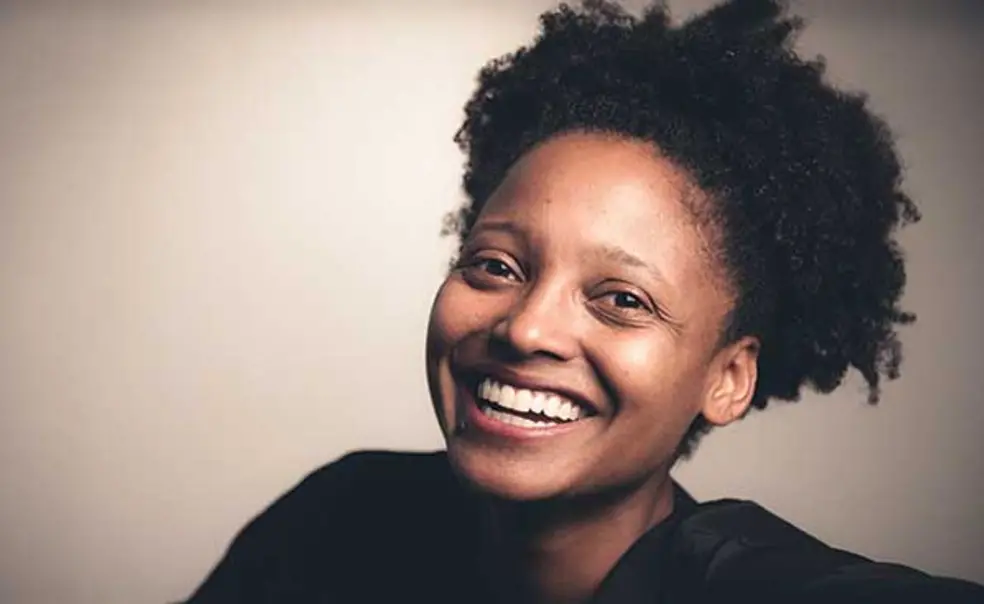Q&A: Tracy K. Smith on Poetry in the Heartland
Former U.S. poet laureate reflects on what she learned from rural America
When Professor Tracy K. Smith became poet laureate of the United States in 2017, she embarked on a series of trips to bring poetry, she says, “to parts of the country where literary festivals don’t always go.” Her travels took her to rural areas in Alaska, Kentucky, Louisiana, South Dakota, and other states, where she visited not only libraries but also prisons, rehab centers, retirement facilities, and youth detention centers.
Smith, the author of four books of poetry, won the 2012 Pulitzer Prize, and her memoir, Ordinary Light, was a 2015 finalist for the National Book Award in nonfiction. With her two-year tenure as poet laureate concluded, Smith took over in July as chair of the University’s Lewis Center for the Arts, succeeding theater scholar Michael Cadden, who led the center for eight years. Smith talked to PAW about what she learned from her travels, why small libraries are so critical to communities around the country, and why she is writing librettos for operas.
What inspired you to focus your work as poet laureate in rural America?
I was trying to think about what poetry specifically could do at this moment in America. What I believe poetry invites us to do is to really listen to each other earnestly, in good faith. Poetry makes you alert, and it makes you beholden to another perspective, and I thought that could be a great shift in approach for the country. We’ve been talking at one another, talking about one another, defending our positions, and in the process exacerbating the sense of division.
On your visits, you gave audiences an anthology of American poetry, and together you read and then discussed poems. How were you able to make people comfortable?
There were plenty of people who felt some apprehension talking about poetry. My job was to say right off the bat, “Whoever you are, you have the necessary skills to talk about this poem. You don’t need a specialized vocabulary. All you need to do is pay attention to what’s happening in this poem, what it causes us to see, feel, wonder, and notice.”
People offered great observations about language and imagery. At a rehab center in rural Kentucky, someone said, “I know this is a love poem, but this is giving me a new way of thinking about my relationship with drugs. It was a love affair.”
What did you find when you visited small libraries in rural areas?
Libraries are a lifeline for people, especially children. To be able to go into a safe space with adults who care about you — it can save a person’s life. I met a girl in Kentucky ... the librarian walked her home after my event. She was a latchkey kid — she wore a key around her neck — and there was lots of stuff going on in the household. Being at the library gave her a respite from that. It was one of countless lives saved by librarians.
In July you became chair of the Lewis Center, which has seen enrollment in its classes climb by more than 50 percent in the last seven years.
The Lewis Center is growing so much. We want to find ways for more students to have the opportunity to experience these classes. Art gives students whose home departments might be very far from humanities a vital vocabulary for the world and the chance to see themselves as art makers. I really do believe it can change your life to spend time looking at the world in the ways artists do. It makes better lawyers, better policymakers, and it makes better artists, too.
Lately you have been writing opera librettos. How did you get interested in doing that?
When I finished a memoir a few years ago, I was excited to realize that my medium is not only verse — it’s language. Then Judd Greenstein [*14] invited me to collaborate on an opera about Robert Moses and Jane Jacobs called A Marvelous Order. My first commissioned libretto, Castor and Patience [about historically black-owned land in the American South] will premiere next year at the Cincinnati Opera. I’m excited about how the art form highlights what’s at stake in a private life. It’s so highly dramatic and also so accurate to what it feels like to be human.
You started a podcast, The Slowdown, which is billed as “five minutes of poetry every weekday.” On each episode, you read a poem, mostly works by contemporary American poets. Did the idea come from your work as poet laureate?
Yes. It felt so meaningful to talk about poems with people that I thought, “I wish I could invite more people to this conversation.” It’s reaching people with this notion that poetry can speak to your daily life in profound ways. I think of the episodes as reflections or meditations on day-to-day life. They open up space for a great poem to speak to you.
Interview conducted and condensed by Jennifer Altmann












No responses yet